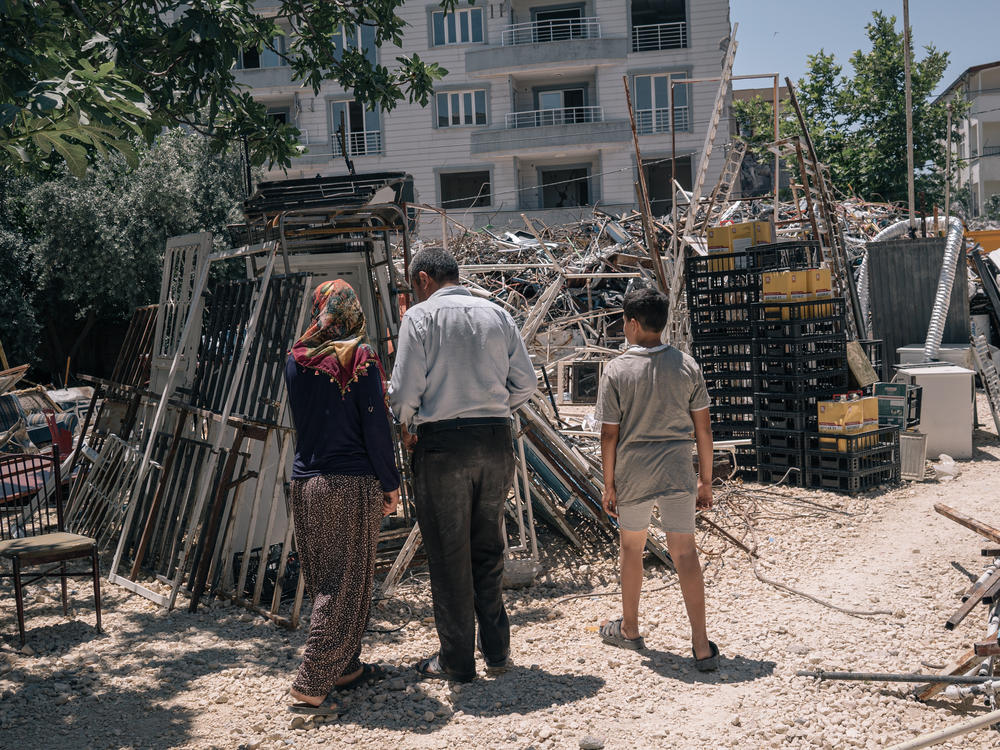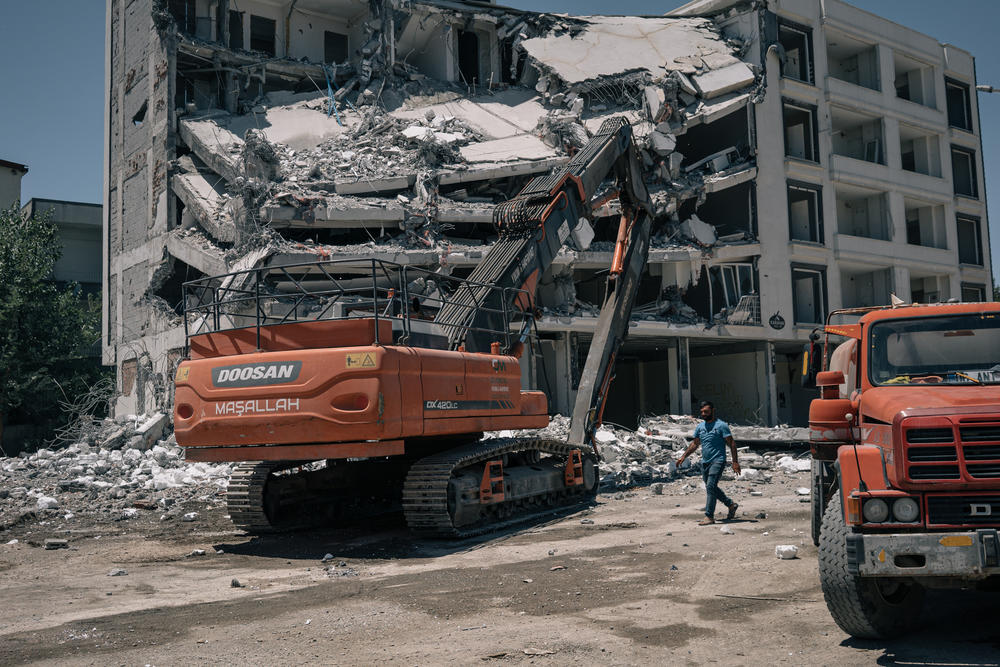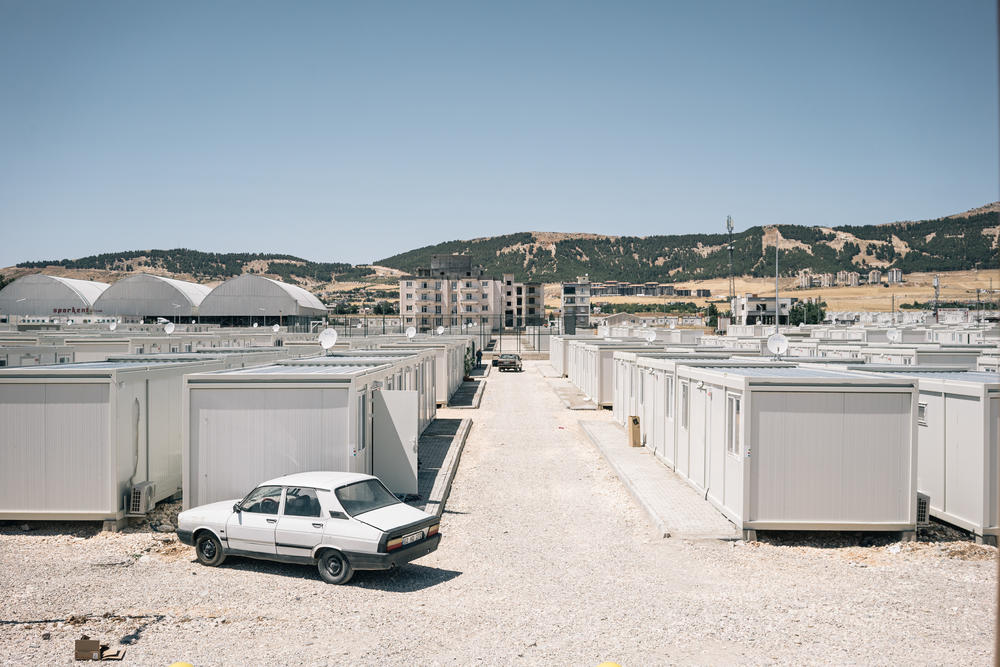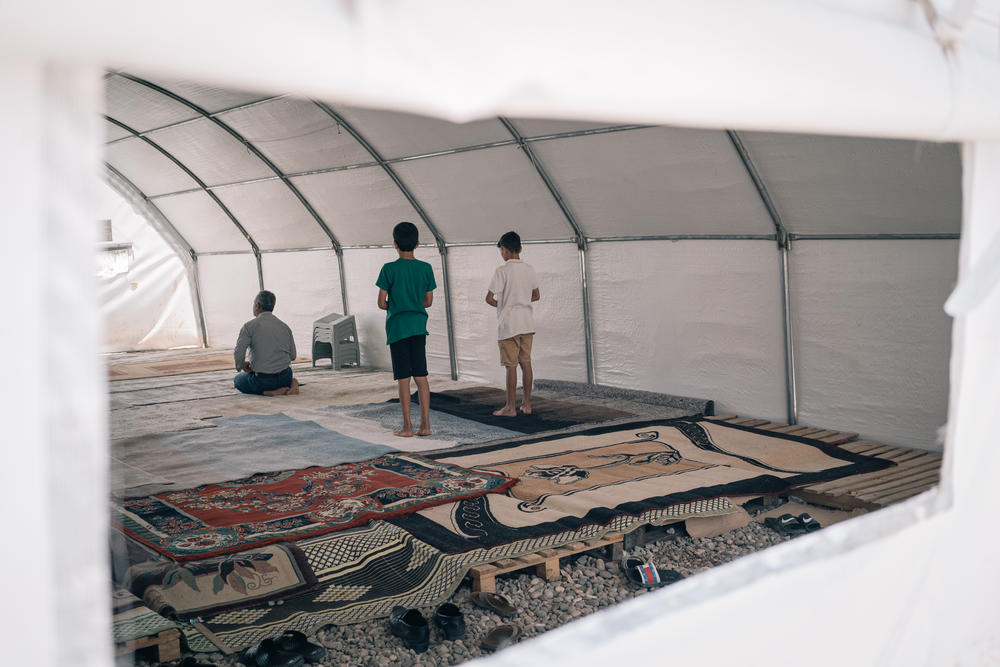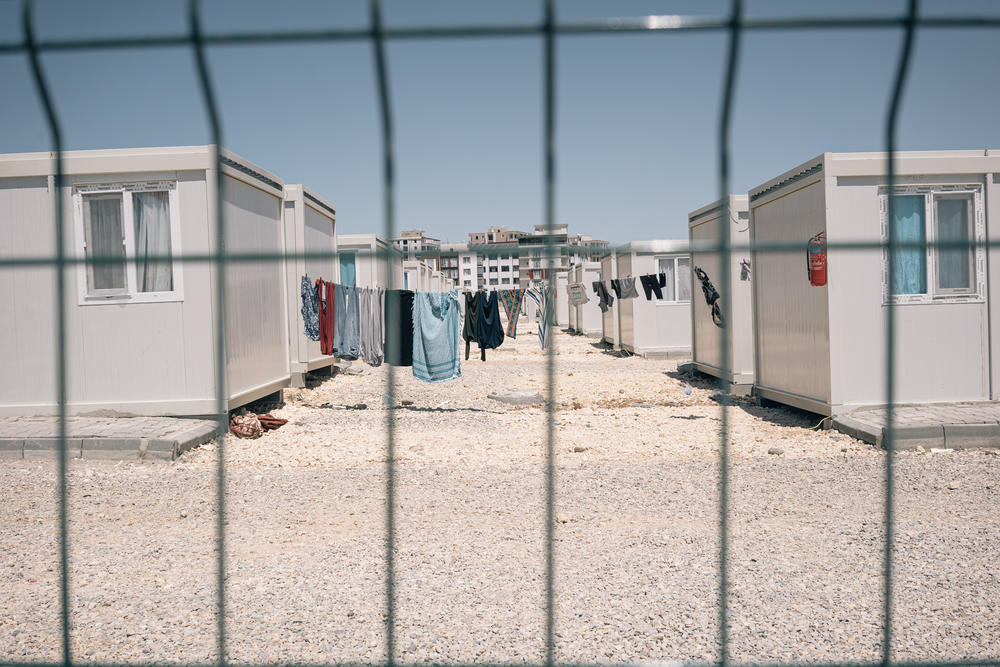Section Branding
Header Content
More than 6 months after Turkey's quake, people who lost homes still await new ones
Primary Content
ADIYAMAN, Turkey — In the shade of a tree on a hot summer morning, women and children sit patiently outside a makeshift bakery squeezed into a small, temporary building. One of the women says she comes here most mornings, because this bakery has loaves of bread to give away to families in distress — like hers.
The devastating Feb. 6 earthquake and major aftershocks that killed some 50,000 people in southern Turkey also left nearly 3 million people displaced and in need of shelter.
Few places were hit harder than Adiyaman, a predominantly Kurdish city with a pre-quake population of more than 632,000. Many of those who survived fled the area, and stayed with relatives while they tried to piece their lives back together.
Those who've come back have seen the slow pace of reconstruction — and many, like the women and children outside this bakery, remain dependent on the kindness of others.
Loaves for the needy
"We are waiting our turn, then we get in the queue," says 34-year-old Hatice. "I left my kids at home. It's too hot, so I left them at home."
Hatice and her children are staying in a temporary apartment after she lost her home in the quake. She has applied to move into other temporary housing as her next dwelling.
She and others in Adiyaman agree to speak to a reporter only if their surnames aren't used. They worry about official retribution for speaking candidly about the quake and the government's response, which has been widely criticized.
Officials in the capital Ankara have been talking about an assistance package for private rebuilding, but it's not ready yet, leading to broad speculation and uncertainty about what might be offered and how families might get it.
Temporary home, temporary workplace
Inside the makeshift bakery, Burhan guides a rolling cart stacked with unbaked loaves into the oven. He ran another bakery before the quake, but, he says, "Our own bakery was demolished in the earthquake, so we're using this prefabricated structure for now."
When asked how he manages to give his product away, he explains that he doesn't, really. Many of his customers who are fortunate enough to have homes and jobs often overpay for their bread, he explains, and he carefully writes down each donation amount in a ledger so he knows how many free loaves he can afford to make that day.
Burhan's own neighborhood was badly damaged. "All the houses are gone, either demolished or uninhabitable," he says, adding that he commutes now from outside the city. "We rent there because there are no places to rent in this area."
Like just about everyone in downtown Adiyaman, Burhan is waiting for the government to give official approval for private reconstruction to begin.
"We're hearing that might begin [soon], but it's not clear yet," he says. "We can't start before there's an official announcement. Once we see that, we'll start."
All at once, the group outside snaps into a somewhat organized line. They hold out their sacks and receive three loaves each. A few young boys try to come back for more, but are shooed away.
Help is promised, but when and how much?
Turkey's President Recep Tayyip Erdogan, stung by criticism immediately after the disaster, is now pointing to progress. During a conference last month in Berlin, he declared that all the debris from the quake had been cleared away and reconstruction was underway.
But in Adiyaman, it's clear that not all the rubble has been removed.
In one lot, heavy equipment rumbles into place to tear down another badly damaged apartment building. Bystanders start to watch, but quickly flee with handkerchiefs over their mouths as cement dust fills the air.
Not far away, there's another staple of life in Adiyaman these days: empty lots that have been turned into earthquake-generated junkyards. Doors, window frames, bed springs and furniture are neatly stacked, and displaced families are browsing for things they can use.
In Emine's case, she's looking for a door. She fled the city along with so many others in February. Now, she says, her family is trying to figure out how to rebuild.
"My place is lightly damaged, but since it's on the ground floor, the inner walls were badly damaged. I just came back after five months, we couldn't stay here. There was no place to stay," she says. "Now, we came back and we're doing the construction with our kids. We stay on the roof."
Emine says she's glad to be back in Adiyaman, although, like many people in this part of Turkey, she can't really say when life will feel normal again. Adding a door to her home will feel like a start.
Copyright 2023 NPR. To see more, visit https://www.npr.org.
